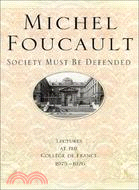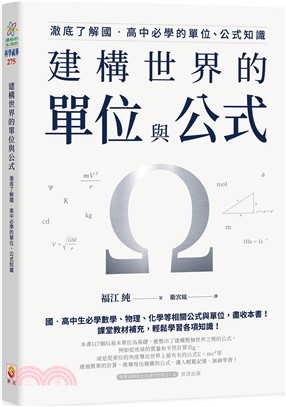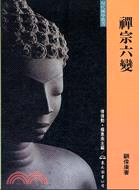商品簡介
From 1971 until his death in 1984, Michel Foucault taught at the Coll?ge de France, perhaps the most prestigious intellectual institution in Europe. Each year, in a series of 12 public lectures, Foucault sought to explain his research of the previous year. These lectures do not reduplicate his published books, although they do have themes in common. The lectures show Foucault ranging freely and conversationally over the implications of his research.
In Society Must Be Defended, Foucault deals with the emergence in the early 17th century of a new understanding of society and its relation to war. War was now seen as the permanent basis of all institutions of power, a hidden presence within society that could be deciphered by an historical analysis. Tracing this development, Foucault outlines a genealogy of power/knowledge that was to become a primary concern in his final years.
Works by the legendary scholar, author, and theorist Michel Foucault (1926-1984) include Madness and Civilization: A History of Insanity in the Age of Reason, The History of Sexuality, The Will to Knowledge, The Order of Things, and Discipline and Punish: The Birth of the Prison.
Series editor Arnold I. Davidson teaches philosophy, divinity, and comparative literature at the University of Chicago and is executive editor of the journal Critical Inquiry. The author of numerous studies on Foucault, he has been a visiting professor at the Coll?ge de France.
Translator David Macey is the author of The Lives of Michel Foucault and Frantz Fanon: A Biography.
Now, nearly twenty years after his death, Michel Foucault remains among the most important cultural and intellectual figures of the last half century. Certainly no twentieth-century theorist deepened our understanding of and reoriented our thinking about knowledge, power, and the self more fundamentally than Foucault. His studies of sexuality, madness, the prison, and medicine are already classics, yet their impact is undiminished. His work continues to inspire us to reconsider and reformulate our basic assumptions.
From 1971 until his death in 1984, Michel Foucault taught at the Coll?ge de France, one of the most renowned institutions of higher learning in the world. The Coll?ge uniquely enrolls no students and confers no degrees. Professors are required to deliver lectures to the general public on topics from their ongoing original research. During his tenure at the Coll?ge, Foucault's teaching, which reached audiences that frequently numbered in the thousands, profoundly influenced a generation of scholars. These lectures, painstakingly reconstructed from tape recordings and Foucault's own notes, are now being made available in English for the first time. Under the guidance of series editor Arnold I. Davidson, Picador will publish all thirteen volumes of the lectures in North America.
In "Society Must be Defended," the inaugural volume in the series, translated by David Macey, Foucault traces the genealogy of the problem of war in society from the seventeenth century to the present. Inverting Clausewitz's famous formulation "War is politics by other means," Foucault explores the notion that "politics is war by other means" in its relation to race, class struggle, and, of course, power. Providing us with a new model of political rationality, he overturns many of our long-held ideas of sovereignty, the law, and even truth itself. The full significance of the dictum "Society must be defended" becomes clear when Foucault's examination culminates in an extraordinary discussion of modern forms of racism.
ochFoucault's lectures at the Coll?ge de France add immeasurably to our understanding and appreciation of his great works and yet also stand on their own as incomparable performances of intellectual daring, imagination, and insight. As Arnold I. Davidson writes in his introduction, "These lectures show us the unfolding of Foucault's thought in all of its vivacity, intensity, clarity, and precision."
"[These] lectures take a provocative, even aggressive stance, one that seems timely. Foucault's thesis is as simple as it is bold: He reverses Clausewitz's dictum 'war is a continuation of politics by other means' into 'politics is a continuation of war by other means.' In other words, Foucault's thesis is that war is a permanent feature of political life and that the theory of the legitimacy of political sovereignty is a ruse hiding the ongoing war that is organized political life . . . Foucault argues that there is a hidden thread running through the cultural history of Europe since the English civil wars of the 17th century, a discourse that concentrates on a permanent war between the privileged and the disadvantaged . . . There are many points in [this book] that provoke reflection and productive concern. The writing is bold and clear, and [Foucault] challenges accepted theories of sovereignty in a way that undermines cultural histories that depend on notions of individual rights or on security through the social contract."—Michael S. Roth, California College of Arts and Crafts, Los Angeles Times Book Review
"Almost 20 years after his death, the first volume of the English translation of [Foucault's Coll?ge de France] lectures has appeared, and its subject—how we think about war—couldn't be more timely. Indeed, what he says in this book may help explain why both Germany and France (not to mention most of the rest of the world) are so openly opposed to our going to war with Iraq (and/or North Korea). Moreover, what Foucault said in 1975-6 also helps us appreciate why it's so difficult to understand the motives for any war. He warns us that there are never single causes . . . [Throughout these lectures, Foucault's] point of view is particularly helpful in enabling us to think critically about political acts—most of which are verbal—that are already, now, the means of war, even before the first shot or bomb. Foucault's sobering message in these lectures is that (1) there is no sense to be made of the expressed causes of war, since they are always multiple and contradictory, and (2) wars don't happen because of failed politics; politics is already verbal warfare, war by other means."—Michael Payne, Bucknell University, The Daily Item
cf0 (Sunbury, PA)
"Capably and collaboratively edited, [this book offers] unusually insightful perspectives and wisdom on a wide variety of educational topics ranging from the origins of feudalism, to the functions and domains of racism, to Hobbes' ideas on war and sovereignty . . . A very thought-provoking and instructive collection [of lectures] from a uniquely informed and informative point of view."—The Midwest Book Review
"One of the most penetrating philosophers of the late 20th century, Foucault gazed into human discourse and cultural practice with an unstintingly historical eye, uncovering the power relations that formed the base of our culturally constructed institutions . . . Using his method of digging historically (as in archaeology) to discover the philosophical relations of ideas (as in genealogy), Foucault contends that after the Middle Ages war can be understood less as the divine right of a sovereign (or juridically) and more as the hidden power that divides societies and thus influences political decisions. These lectures offer important insights into the evolution of the primary focus of Foucault's later work-the relationship between power and knowledge. This [is] first volume of an antici
作者簡介
Translator David Macey has translated 20 books from the French and is the author of The Lives of Michel Foucault and Frantz Fanon (Picador). He lives in Leeds, England.
主題書展
更多主題書展
更多書展本週66折
您曾經瀏覽過的商品
購物須知
外文書商品之書封,為出版社提供之樣本。實際出貨商品,以出版社所提供之現有版本為主。部份書籍,因出版社供應狀況特殊,匯率將依實際狀況做調整。
無庫存之商品,在您完成訂單程序之後,將以空運的方式為你下單調貨。為了縮短等待的時間,建議您將外文書與其他商品分開下單,以獲得最快的取貨速度,平均調貨時間為1~2個月。
為了保護您的權益,「三民網路書店」提供會員七日商品鑑賞期(收到商品為起始日)。
若要辦理退貨,請在商品鑑賞期內寄回,且商品必須是全新狀態與完整包裝(商品、附件、發票、隨貨贈品等)否則恕不接受退貨。

























